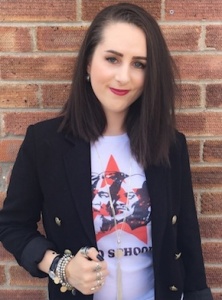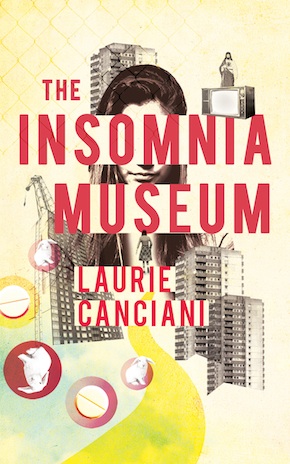Beyond the abyss
by Laurie CancianiI was only a few months through an MA in Creative Writing and I already wanted to quit. My partner was driving me to the train station at the time. I had the money in my hand ready to pay for the expensive journey that would get me all the way from South Wales to Bath and I’d read all the work necessary for the challenging seminars, but I decided it would be better, and easier, for me to quit. Luckily, my partner refused to take me back home and insisted I see the course through to the end, whatever the outcome. I was tired, overworked, and the minus sign next to my current account reflected the below-zero motivation I had to spend more money on something that I knew deep down wouldn’t work out. I went to the train station, got my ticket and forced myself to keep going. I didn’t know it then but quitting would’ve been the worst mistake I could’ve made. I went on to achieve a high grade, I won the coveted annual prize for the best work-in-progress of the year and I gained representation from a leading literary agency, which led to the publication of my debut novel The Insomnia Museum.
The degree was hard. There were seminars to attend, criticisms to accept, thousands of words to write, books to read and study, deadlines to obsess over and there were corners in the library that you could sit down and cry in without anyone paying that much attention to you. Though it wasn’t the hard work that almost forced me to quit; I was well known by that point for my insatiable work ethic and dedicated early-morning writing routine. No, the problem was money. I was paying every month for the price of the course, the expensive train tickets to get me from South Wales to Bath twice a week and I was working almost full-time to pay for it all, which left me little to no time to do the work itself.
To say I was struggling was an understatement. I was wading through hot tar and every time I stepped towards the finish line I seemed to sink even deeper. Each month I desperately tried to stretch my money further. I confided in a friend on the same course who told me that her parents were paying for her studies and accommodation. I confided in another who owned her own business, another had a successful career already and was taking a break to study, another went to private school and now wanted to write as a hobby. I was starting to see a pattern. They were all talented, wonderful people who deserved to be there, but they were from a completely different world than I was. I felt immediately as though I didn’t belong. An MA in Creative Writing suddenly seemed to be the wrong choice for somebody who grew up in a council house in South Wales and struggled with money for most of her life.
Growing up in a poor area meant that we, like a lot of other people, didn’t have extra money to throw around. We were used to not going on holidays, not going to the cinema or out to restaurants, and we sometimes pretended we were out when money collectors came to the door. I had been to the job centre with my mother while she searched for work, and I’d witnessed the bad attitudes of some of the members of staff towards those who were searching for employment. It was everyday life. How things were. We were the jobless and hopeless, or we were working full-time and still finding money hard to come by, or we were sitting in the dark waiting until payday to buy an electricity token, or we were feeding the children first and eating scraps from their plates, or we were existing only on bread and milk, because poverty is a prison sentence. At that time I felt as though we weren’t regarded or considered by other members of society. Instead, we existed somewhere between broke and desolate and our struggles were masked by headlines that often used words like ‘scroungers,’ or ‘lazy’ to describe us. We weren’t the working class, we were the forgotten class.
Often the desire to quit stems from a fear of failure, but for me it was a fear rooted through situation and experience; I was afraid of finding out that I didn’t belong, of being discovered as a stowaway to my own aspirations.”
People who are born into a certain life often don’t have a lot of choices when they leave school. They’re discouraged from following creative paths, pushed instead into jobs that give them security and stability, which is the smart choice. It’s a choice made more as a result of situation than talent, which is why creativity can often be left to decompose before adulthood. I’d always shown a talent for writing, but I had a disappointing education that seemed to value more measurable subjects like maths or science than the creative arts. I was encouraged to aim for technical college, where it was advised I take a hairdressing course because they had to fill several open spaces. I was kicked out when I turned up to start my A levels because I wasn’t a ‘model pupil.’ Then, when I finally got a chance to display my writing talent in a homework assignment, a teacher thought the work was too good and accused me of copying from a book.
I spent the next few years of my life with deep feelings of anger, resentment and apathy. I battled with mental health issues and feelings of worthlessness. I had very few opportunities, very few prospects, and each badly paid job I accepted became another blow to my already crumbling self-esteem. At that time I lived in a small, first-floor council flat with my mother and sister. Money was tighter than ever, but I still had an overwhelming desire to write, and this was enough to motivate me into action. I attended college and studied for a GCSE in English Language, where thankfully my ability was noticed. I went on to university, where I was encouraged and supported beyond anything I’d experienced before, and this put me on a path that would later lead to publication.
Often the desire to quit stems from a fear of failure, but for me it was something more complex. It was a fear rooted through situation and experience; I was afraid of finding out that I didn’t belong, of being discovered as a stowaway to my own inflated aspirations. Luckily, all my fears were cauterised by support and encouragement from fantastic mentors who saw through my self-deprecation. Unfortunately, this doesn’t happen for everyone. For others, the world can be closed off. Opportunities may not come along so often and pursuing a career of any kind for those of the forgotten class is like having to run a marathon before we’re allowed to start the race. When I decided to buy my train ticket that day, I realise now that I was opening a small part of the world that had been closed off and defying the expectations of my situation. I was telling myself that people like me deserved the opportunity to show what we’re capable of. There isn’t a single place in the world we don’t belong.
 Laurie Canciani was born in 1986 and grew up in Bridgend in South Wales. She was kicked out of school at 16 and battled with agoraphobia. Rediscovering her love of writing in her twenties she earned an MA in Creative Writing at Bath Spa University. The Insomnia Museum is out now in hardback and eBook from Apollo/Head of Zeus.
Laurie Canciani was born in 1986 and grew up in Bridgend in South Wales. She was kicked out of school at 16 and battled with agoraphobia. Rediscovering her love of writing in her twenties she earned an MA in Creative Writing at Bath Spa University. The Insomnia Museum is out now in hardback and eBook from Apollo/Head of Zeus.
Read more
@lauriecanciani


